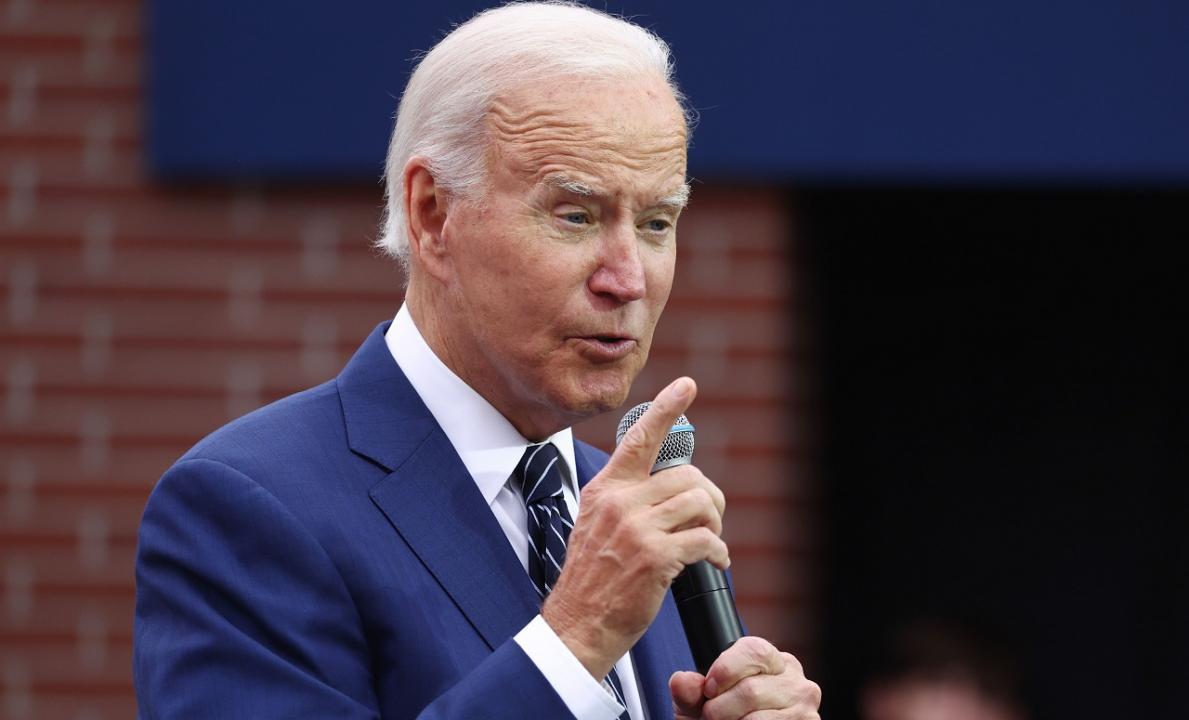The US president's remarks at the reception of the governing party were made in the context of the changing geopolitical situation globally

US President Joe Biden. Pic/AFP
US President Joe Biden has said Pakistan is "one of the most dangerous nations in the world" as it has "nuclear weapons without cohesion".
ADVERTISEMENT
He made the remarks while addressing a Democratic Party congressional campaign committee reception on Thursday.
"And what I think is maybe one of the most dangerous nations in the world: Pakistan. Nuclear weapons without any cohesion," Biden said.
The US president's remarks at the reception of the governing party were made in the context of the changing geopolitical situation globally.
The West has expressed concern over the safety and security of Pakistan's nuclear weapons. Many in the West are worried that Pakistan's nuclear weapons could fall into the hands of terrorists or jihadi elements.
"Ever since May 1998, when Pakistan first began testing nuclear weapons, claiming its national security demanded it, American presidents have been haunted by the fear that Pakistan's stockpile of nukes would fall into the wrong hands. That fear now includes the possibility that jihadis in Pakistan, freshly inspired by the Taliban victory in Afghanistan, might try to seize power at home," Marvin Kalb, a nonresident senior fellow with the Foreign Policy programme at Brookings wrote last year.
The top US general Mark Milley had warned that a rapid withdrawal of forces from Afghanistan would pose an increased risk to the security of Pakistan's nuclear arsenal.
Also Read: Joe Biden says Vladimir Putin's nuclear threat biggest risk since Cuban missile crisis
In his speech, Biden said the world was changing rapidly and countries were rethinking their alliances.
"And the truth of the matter is, I genuinely believe this, that the world is looking to us. Not a joke. Even our enemies are looking to us to figure out how we figure this out, what we do."
There was a lot at stake, Biden said, emphasising that the US had the capacity to lead the world to a place it had never been before.
"Did any of you ever think you'd have a Russian leader, since the Cuban Missile Crisis, threatening the use of tactical nuclear weapons that would, could only kill three, four thousand people and be limited to make a point?. In a televised speech in September, Russian President Vladimir Putin said he would, certainly use all the means at our disposal to protect Russia and our people." He added that he was not bluffing.
"Did anybody think we'd be in a situation where China is trying to figure out its role relative to Russia and relative to India and relative to Pakistan?"
Talking about his Chinese counterpart Xi Jinping, the US president termed him as a man who knew what he wanted but had an ¿enormous¿ array of problems.
Earlier this month, the US urged its citizens to reconsider travel to Pakistan, especially its restive provinces, due to terrorism and sectarian violence.
Earlier this week, it emerged that Pakistan, once a key US ally, was not even mentioned in the US National Security Strategy 2022, which identified China as "America's most consequential geopolitical challenge".
The 48-page document does mention terrorism and other geo-strategic threats in the South and Central Asian region, but unlike in the recent past, it does not name Pakistan as an ally needed to tackle those threats. Pakistan was also absent from the 2021 strategy paper.
A formerly warm relationship between the US and Pakistan frayed due to Pakistan's support for the Taliban in Afghanistan and the presence of large numbers of Jihadi militants on its soil. Americans have been particularly upset with Pakistan since 2011, after al Qaeda founder Osama bin Laden was found and killed there.
After a hiatus of a few years, Pakistan and the United States have started to re-engage. Over the past few weeks, Pakistani Foreign Minister Bilawal Bhutto Zardari met with US Secretary of State Antony Blinken and Chief of Army Staff General Qamar Javed Bajwa met with Secretary of Defense Lloyd Austin.
This story has been sourced from a third party syndicated feed, agencies. Mid-day accepts no responsibility or liability for its dependability, trustworthiness, reliability and data of the text. Mid-day management/mid-day.com reserves the sole right to alter, delete or remove (without notice) the content in its absolute discretion for any reason whatsoever.
 Subscribe today by clicking the link and stay updated with the latest news!" Click here!
Subscribe today by clicking the link and stay updated with the latest news!" Click here!







